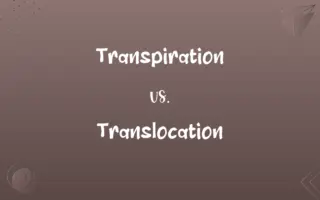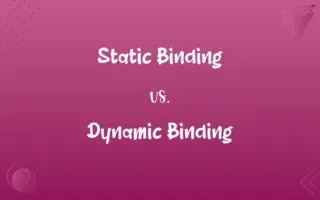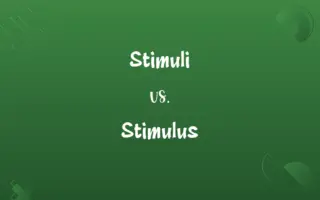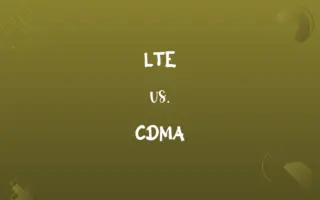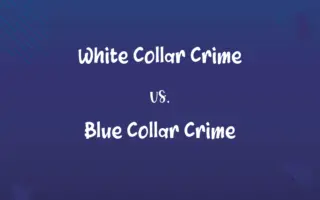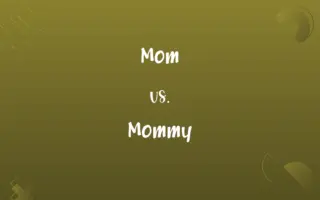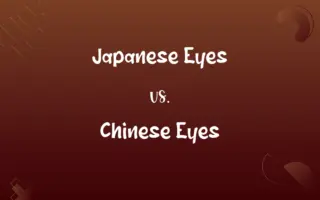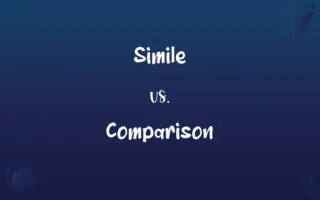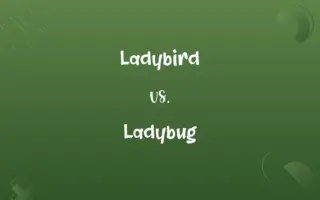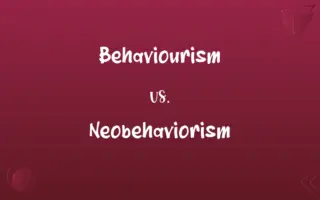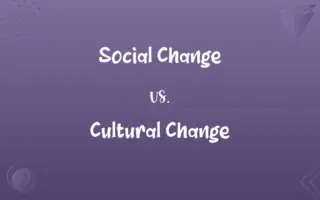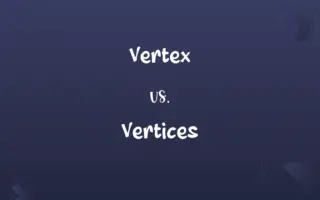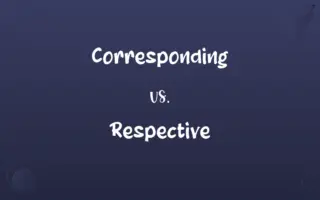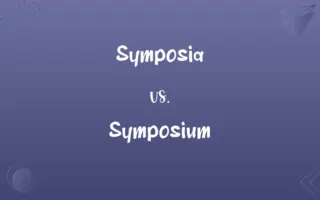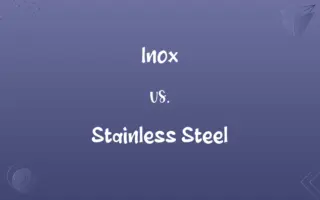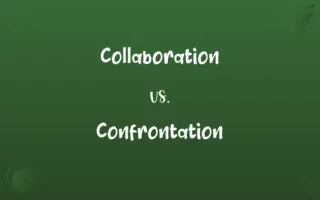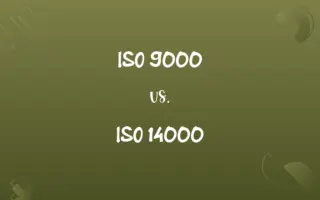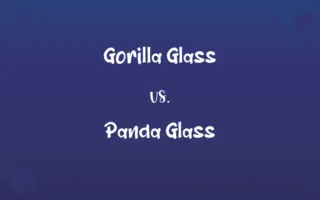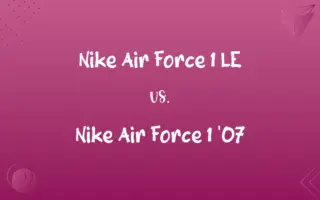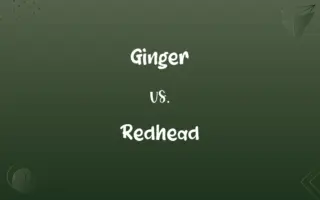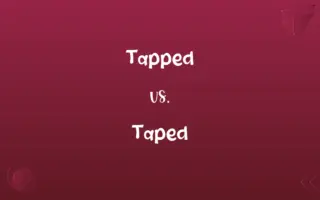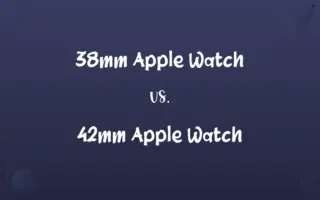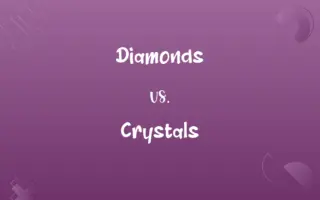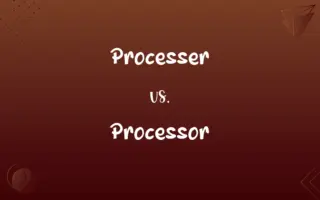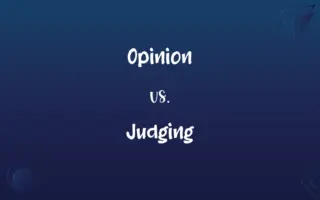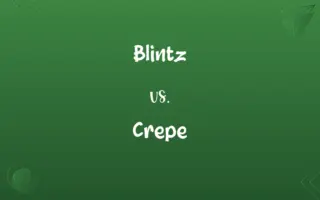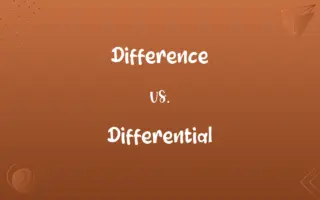Were vs. Was: Know the Difference

By Shumaila Saeed || Published on February 3, 2024
"Were" is the past tense of "be" for plural subjects and "you," while "was" is used for singular subjects except "you."
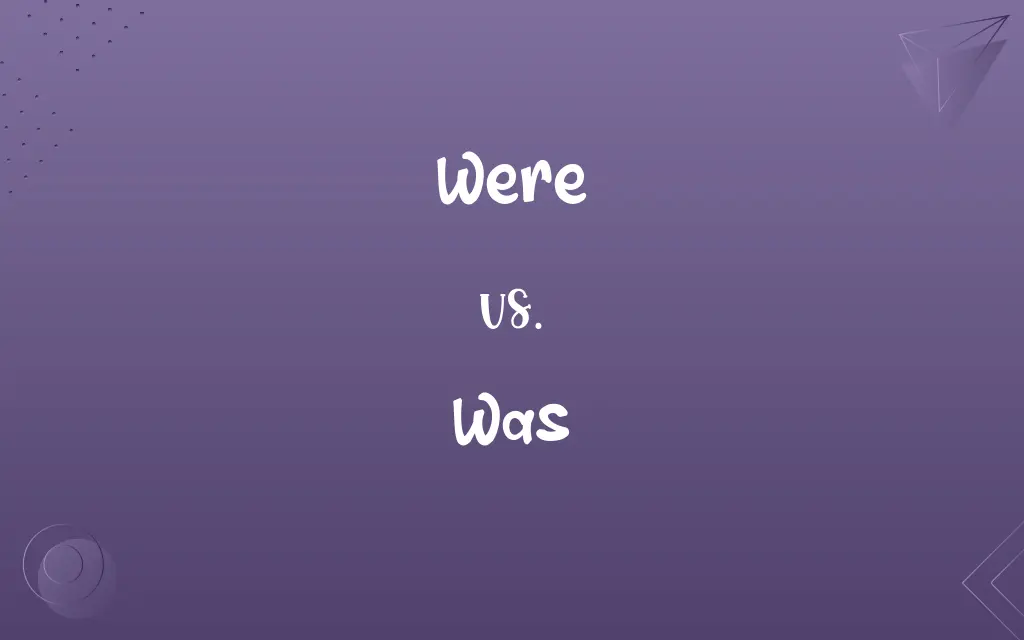
Key Differences
"Were" is the past tense form of the verb "be" used for plural subjects and the pronoun "you." It is employed in sentences where the subject is more than one entity or when addressing someone directly with "you." For instance, in the sentence "They were happy," "were" matches the plural subject "they." In contrast, "was" is used with singular subjects, except "you." It serves the same purpose as "were" but in a singular context. An example is, "He was late," where "was" complements the singular subject "he."
Shumaila Saeed
Feb 03, 2024
In questions and negative sentences, "were" and "was" are used similarly. "Were" is applied when asking a question about multiple subjects or with "you," such as "Were you at the party?" Conversely, "was" is used with singular subjects in questions like "Was she there?" Both "were" and "was" can be contracted in negatives, as in "They weren't ready" or "He wasn't aware."
Shumaila Saeed
Feb 03, 2024
In conditional sentences, "were" is used for all subjects in the subjunctive mood, indicating hypothetical or unreal situations. For example, "If I were a bird, I would fly." Here, "were" is used even with singular subjects like "I." However, "was" remains appropriate for indicative past tense situations, as in "I was a student."
Shumaila Saeed
Feb 03, 2024
Finally, in colloquial or informal language, the distinction between "were" and "was" can sometimes blur, particularly in regional dialects. However, in standard English grammar, the rules for their usage are clear and distinct. "Were" is for plural and "you," while "was" is for singular subjects, maintaining clarity and correctness in communication.
Shumaila Saeed
Feb 03, 2024
Comparison Chart
ADVERTISEMENT
Conditional Sentences
"If I were..." (subjunctive mood)
"I was..." (indicative mood)
Shumaila Saeed
Feb 03, 2024
Negative Form
"weren't" (e.g., "They weren't ready")
"wasn't" (e.g., "He wasn't ready")
Shumaila Saeed
Feb 03, 2024
Were and Was Definitions
Were
Employed in negative sentences for plural subjects or "you."
They weren't aware of the changes.
Shumaila Saeed
Jan 14, 2024
ADVERTISEMENT
Was
Past tense of "be" for singular subjects, excluding "you."
She was the team captain.
Shumaila Saeed
Jan 14, 2024
Were
Used in subjunctive mood for hypothetical situations.
If I were a millionaire, I would travel the world.
Shumaila Saeed
Jan 14, 2024
Was
Used to describe a state or condition in the past for singular subjects.
The weather was perfect.
Shumaila Saeed
Jan 14, 2024
Were
Past tense of "be" for plural subjects and "you."
We were excited about the trip.
Shumaila Saeed
Jan 14, 2024
Was
Employed in negative sentences for singular subjects.
He wasn't ready for the exam.
Shumaila Saeed
Jan 14, 2024
ADVERTISEMENT
Were
Second person singular and plural and first and third person plural past indicative of be.
Shumaila Saeed
Jan 14, 2024
Was
Used in questions involving singular subjects.
Was he at the office yesterday?
Shumaila Saeed
Jan 14, 2024
Was
Applied in past continuous tense for singular subjects.
He was sleeping when I arrived.
Shumaila Saeed
Jan 14, 2024
Was
First and third person singular past indicative of be. See Note at you-uns.
Shumaila Saeed
Jan 14, 2024
Were
Inflection of be
We were about to leave.
Mary and John, you were right.
They were a fine group.
They were to be the best of friends from that day on.
Shumaila Saeed
Jan 14, 2024
Were
Inflection of be
I wish that it were Sunday.
I wish that I were with you.
Shumaila Saeed
Jan 14, 2024
Was
Used in phrases with existential there when the semantic subject is (usually third-person) plural.
There was three of them there.
Shumaila Saeed
Jan 14, 2024
Were
(fandom) The collective name for any kind of person that changes into another form under certain conditions, including the werewolf.
Shumaila Saeed
Jan 14, 2024
Was
The first and third persons singular of the verb be, in the indicative mood, preterit (imperfect) tense; as, I was; he was.
Shumaila Saeed
Jan 14, 2024
Were
A fine for slaying a man; the money value set upon a man's life; weregild.
Every man was valued at a certain sum, which was called his were.
Shumaila Saeed
Jan 14, 2024
Were
The imperfect indicative plural, and imperfect subjunctive singular and plural, of the verb be. See Be.
Shumaila Saeed
Jan 14, 2024
Were
Used in questions involving plural subjects or "you."
Were you at the concert last night?
Shumaila Saeed
Jan 14, 2024
Were
Applied in past continuous tense for plural subjects or "you."
You were studying when I called.
Shumaila Saeed
Jan 14, 2024
Repeatedly Asked Queries
When should I use 'were'?
Use 'were' for plural subjects and with 'you,' both singular and plural.
Shumaila Saeed
Feb 03, 2024
Is 'was' ever used with plural subjects?
No, 'was' is not used with plural subjects.
Shumaila Saeed
Feb 03, 2024
Can 'were' be used for singular subjects?
Yes, in the subjunctive mood for hypothetical situations, regardless of number.
Shumaila Saeed
Feb 03, 2024
Can 'was' be used with 'you'?
No, use 'were' with 'you,' regardless of whether it's singular or plural.
Shumaila Saeed
Feb 03, 2024
How do 'were' and 'was' function in questions?
'Were' is used for questions with plural subjects or 'you,' while 'was' is used with singular subjects.
Shumaila Saeed
Feb 03, 2024
Can 'were' and 'was' be used interchangeably in informal speech?
In some dialects, they might be used interchangeably, but it's not grammatically correct in standard English.
Shumaila Saeed
Feb 03, 2024
How do I form the negative with 'were' and 'was'?
Add 'not' after them, forming 'were not' (weren't) and 'was not' (wasn't).
Shumaila Saeed
Feb 03, 2024
Can 'were' and 'was' be contracted?
Yes, 'were' becomes 'weren't' and 'was' becomes 'wasn't' in negative contractions.
Shumaila Saeed
Feb 03, 2024
In what type of sentences is 'were' used in the subjunctive mood?
In hypothetical or unreal conditional sentences, such as "If I were you..."
Shumaila Saeed
Feb 03, 2024
Is it correct to use 'was' in hypothetical statements?
In formal, standard English, 'were' is preferred in the subjunctive mood.
Shumaila Saeed
Feb 03, 2024
Is 'were' used in formal writing?
Yes, especially in the subjunctive mood for formal or literary contexts.
Shumaila Saeed
Feb 03, 2024
How does context affect the use of 'were' and 'was'?
The number and person of the subject determine the correct choice between 'were' and 'was.'
Shumaila Saeed
Feb 03, 2024
Are 'were' and 'was' used in different tenses?
No, both are used in the past tense but with different subjects.
Shumaila Saeed
Feb 03, 2024
What is a common mistake with 'were' and 'was'?
Confusing their usage in singular and plural contexts.
Shumaila Saeed
Feb 03, 2024
What's an example of a negative sentence with 'was'?
"She wasn't sure about the answer."
Shumaila Saeed
Feb 03, 2024
How important is subject-verb agreement with 'were' and 'was'?
Very important; it's crucial for grammatical correctness.
Shumaila Saeed
Feb 03, 2024
What is an example of 'were' in past continuous tense?
"They were playing when it started to rain."
Shumaila Saeed
Feb 03, 2024
Can 'was' ever be used in a conditional sentence?
Yes, in indicative mood conditional sentences, such as "If he was tired..."
Shumaila Saeed
Feb 03, 2024
In what kind of sentences is 'was' commonly used?
In descriptive sentences about the past, like "The sky was clear."
Shumaila Saeed
Feb 03, 2024
Share this page
Link for your blog / website
HTML
Link to share via messenger
About Author
Written by
Shumaila SaeedShumaila Saeed, an expert content creator with 6 years of experience, specializes in distilling complex topics into easily digestible comparisons, shining a light on the nuances that both inform and educate readers with clarity and accuracy.
